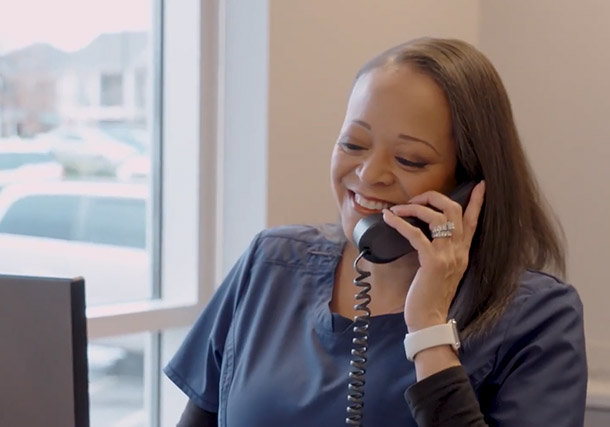
Mold Allergy Treatment in Charlotte
A mold allergy can be a frustrating and inconvenient condition for many individuals, whether you’re affected seasonally or year-round. At Carolina Asthma & Allergy Center, we understand the impact that a mold allergy can have on your lifestyle and well-being, and we are committed to providing comprehensive care to help manage and treat this condition.
Our team of board-certified allergists and experienced healthcare professionals is dedicated to providing personalized treatment plans and ongoing support to help you live your life to the fullest. Whether you are seeking a diagnosis, treatment, or ongoing management of your mold allergy, we are here to help you every step of the way.
How to Request an Appointment
At Carolina Asthma and Allergy Center, we offer comprehensive evaluation and treatment for mold allergies. If you suspect you may have a mold allergy or have experienced seasonal symptoms, you can request an appointment with our team of board-certified allergists and experienced healthcare professionals.
To schedule an appointment, you can call our office or fill out the online appointment request form on our website. Our friendly staff will work with you to find a convenient date and time for your visit.
During your appointment, our allergists will review your medical history, perform a physical exam, and conduct any necessary tests to determine if you have a mold allergy. Based on your evaluation, our team will develop a personalized treatment plan to help manage your symptoms and prevent future allergic reactions, especially during seasons when mold is at its highest.
What are Mold Allergies?
Mold is commonly found in areas like your basement, bathroom, kitchen, backyard and more. Oftentimes mold isn’t visible to the naked eye, and approximately 1,000 species of mold exist in the United States. Mold allergies occur when mold spores become airborne. This leads to an allergic reaction to individuals who have allergies.

What are the Symptoms of Mold Allergies?
Symptoms of mold allergies vary between individuals. Signs of an allergic reaction to mold include the following:
- Sneezing
- Runny Nose
- Cough
- Watery eyes
In some cases, a mold allergy can trigger asthma. Contact your allergist to discuss your prevention and management options.
Mold Allergy Treatment in Charlotte
Individuals who have mold allergies can take measures to avoid exposure to mold. To reduce exposure to outdoor mold spores, wear a dust mask when dong outdoor yard work, such as mowing the lawn or landscaping. Indoor exposure to mold can be limited by reducing dampness in mold-prone areas, using exhaust fans and improving airflow. Your doctor may also recommend medications to control allergy symptoms, such as an antihistamine, or in some severe cases, allergy shots.
Summary
At Carolina Asthma and Allergy Center, we are dedicated to providing compassionate care and ongoing support to help you live your life to the fullest. Contact us today to request an appointment and take the first step towards managing your mold allergy.
Mold Allergy FAQs
How are mold allergies diagnosed?
Your allergist will review your medical history and possibly recommend a skin or blood test if mold allergies are suspected. During a skin test, your allergist will use different types of mold to scratch or prick your skin and look for a reaction. Based on the results, a treatment plan will be proposed.



